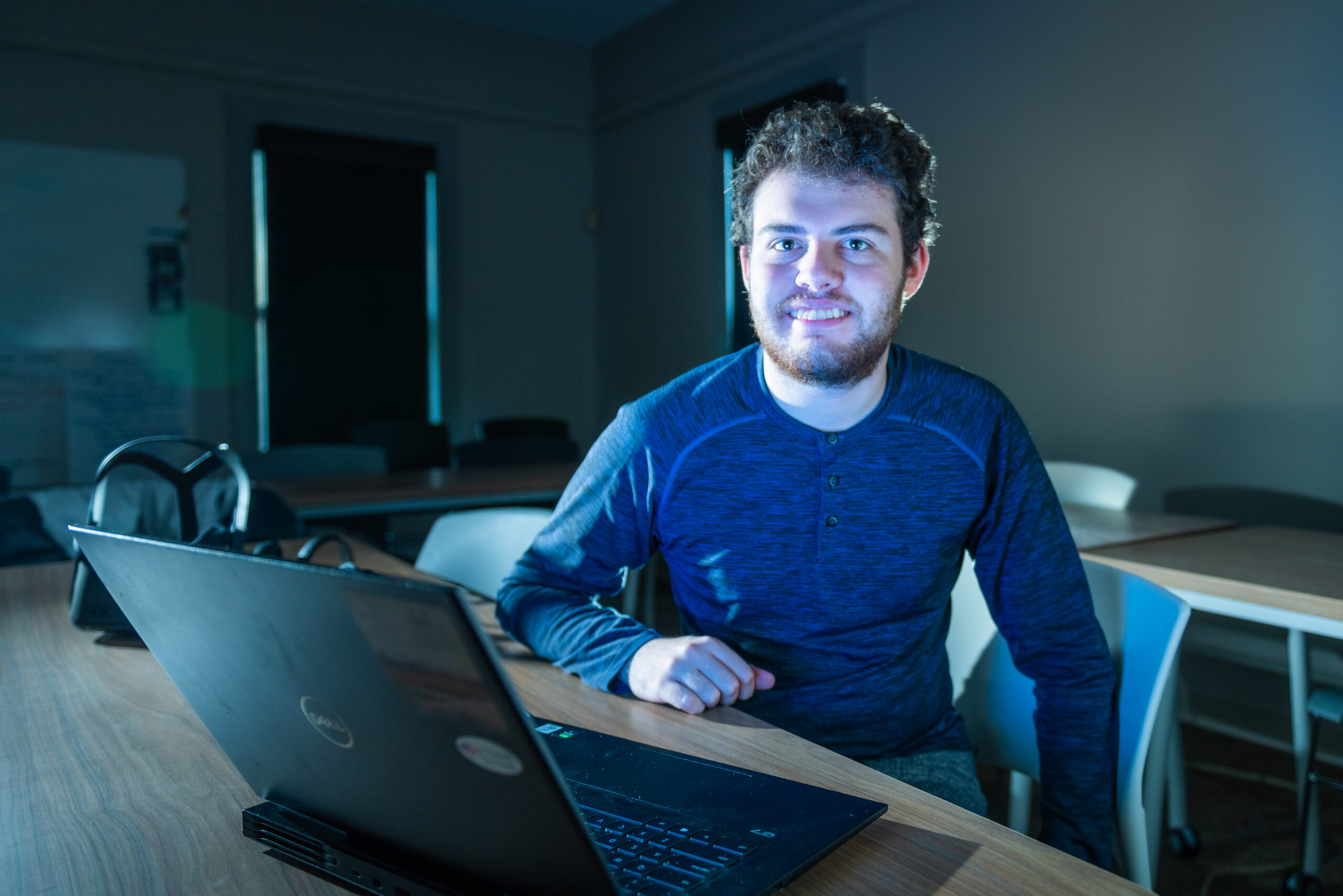BSDT student explores pathway for neurodivergent game designers

Max Koppel ’22, M.S. ’23, was always fascinated by the intricacies of puzzles. When he transferred from Embry-Riddle Aeronautical University to Clark University’s Becker School of Design & Technology in spring 2020, Koppel discovered that the skills he developed solving puzzles translated well into creating engaging and elaborate games.
The power of storytelling also motivated Koppel to pursue the game design program, where his studies combine his creative and technical talents.
“I really admired video games as a storytelling medium and wanted to use one to tell my own story,” he says.
Since graduation, Koppel has faced challenges finding jobs that allow him to showcase his storytelling, programming, and puzzle-solving skills. He’s neurodivergent and has found that many companies interview applicants in ways that create barriers for those whose brains process or learn differently than what may be considered “typical.”
“There are plenty of jobs that say they are open to neurodivergent applicants but it’s hard to find one that will accommodate for you,” he says. “A lot of companies do timed programming exams or prerecorded video questions which are incredibly stressful to me.”
So, when Koppel, who is currently pursuing a master’s in computer science at Clark, learned of an internship at Northeastern University that was dedicated to neurodivergent game designers, he eagerly applied.
Koppel spent two months during the summer working at Northeastern’s ReGame-XR Lab, which is dedicated to VR, or virtual reality. He worked with three other students from universities across the East Coast to create a new VR-based game, ExcerTrain, which encourages children to complete different exercises that help to power a magical train. As the players exercise, ExcerTrain measures their heart rate. The game, made for kids ages 8 to 10, increases or decreases in difficulty depending on the heart rate of the player. It was created in Unity, an engine that gives designers, programmers, and artists a base to develop and publish a game.
Koppel says the experience allowed him to explore new pathways of programming in both two-dimensional and three-dimensional gamescapes. As he continues his studies at Clark, Koppel is now working on a Morse code game and a virtual Rubik’s Cube. Players press buttons to rotate the cube’s sides. When the puzzle is complete, a congratulatory sound praises the player.
“I got into programming in particular because it’s like open-ended puzzle solving and I’ve always had a passion for that,” he says.
When he’s not busy programming for potential projects, Koppel participates in events called “Puzzle Months,” which are team-based puzzle solving competitions that are global in reach.


